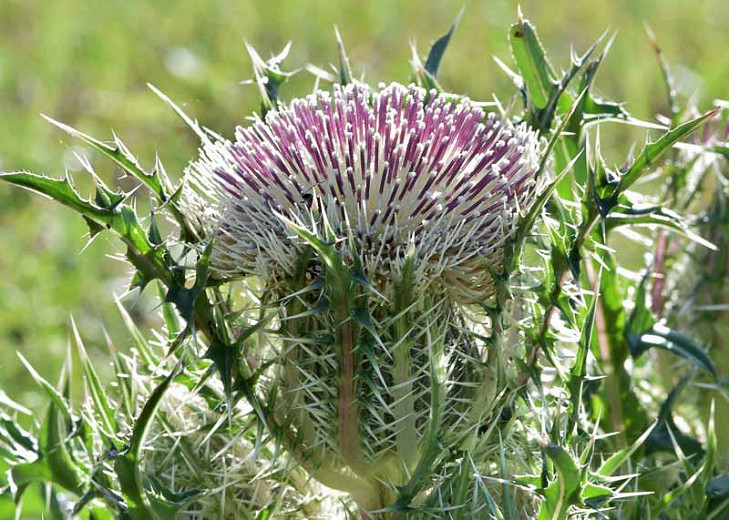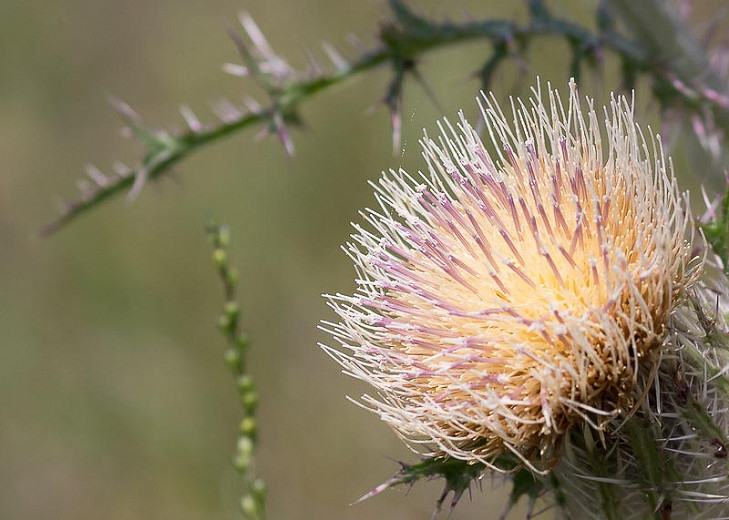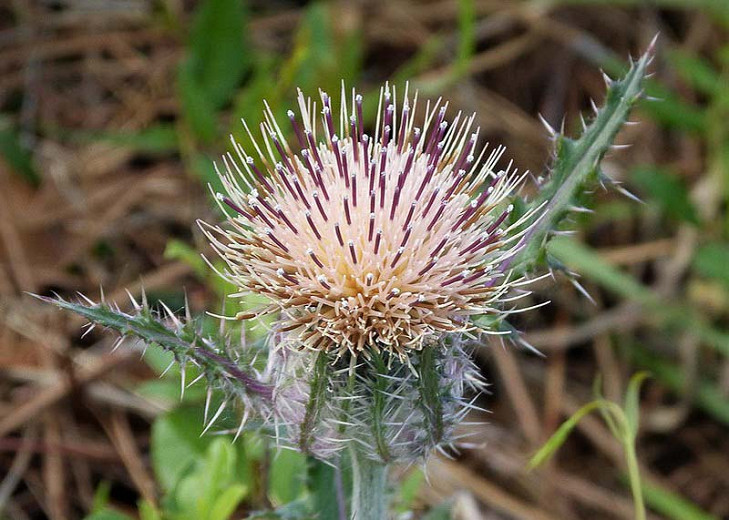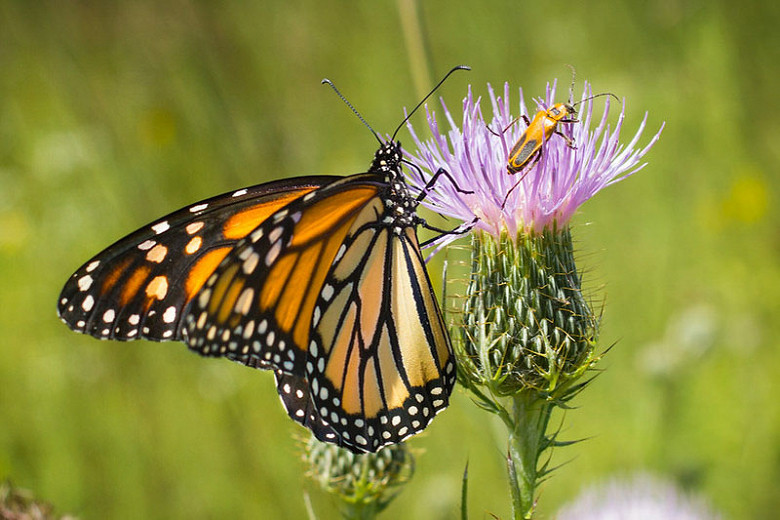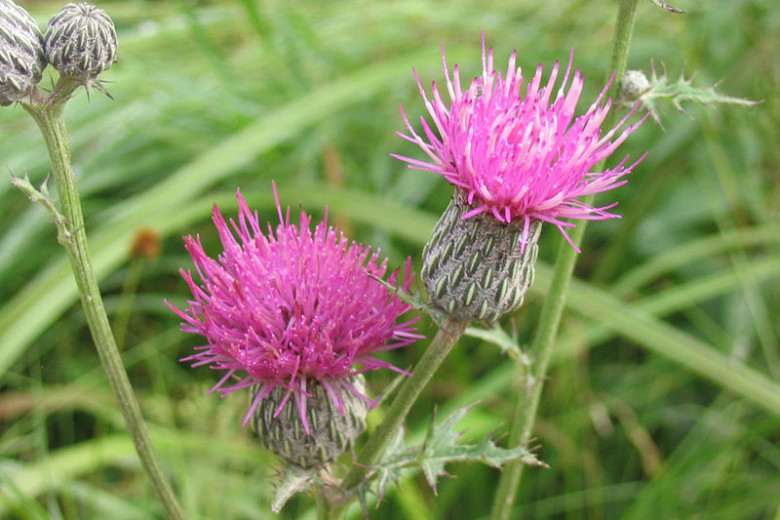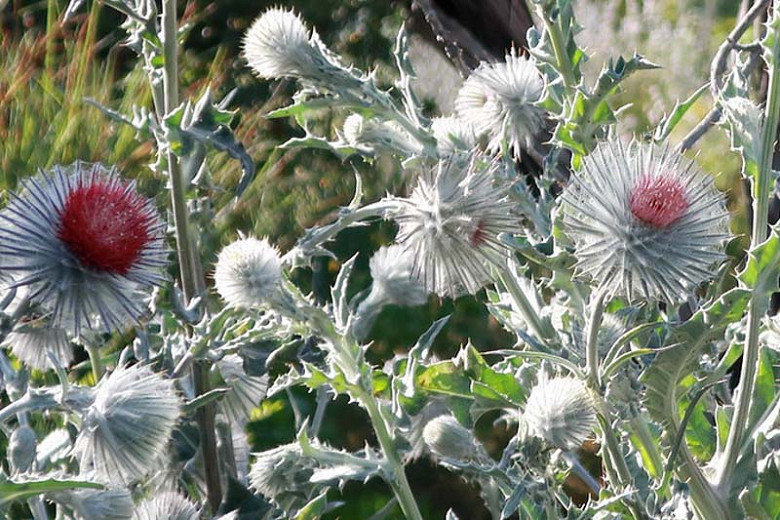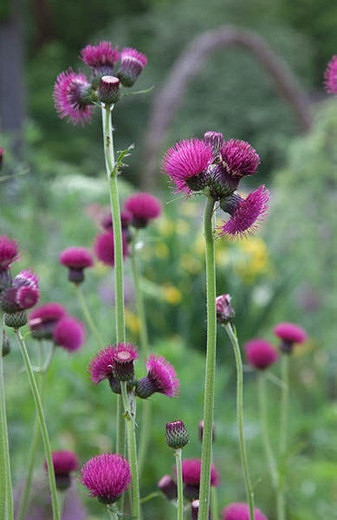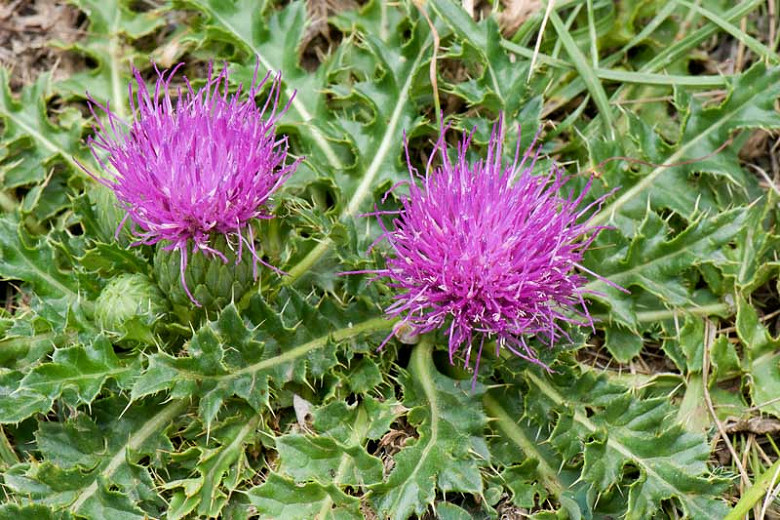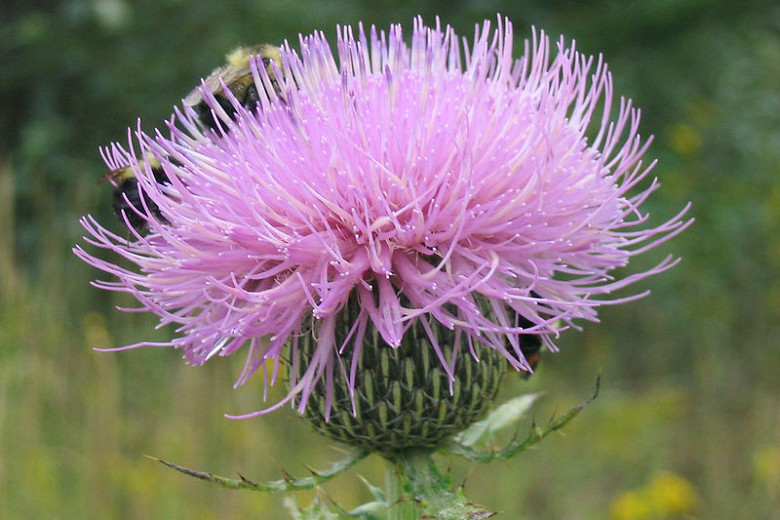Cirsium horridulum (Bull Thistle)
A high-value nectar plant, Cirsium horridulum (Bull Thistle) is a biennial or short-lived perennial boasting tall stalks topped with large purple flowers (sometimes yellow) that emerge from a basal rosette of very spiny, toothed, green and purple leaves, 8-24 in. long (20-60 cm). Blooming in the spring, the pincushion-like flower heads, 3 in. across (7 cm), are packed with small disk florets. They produce copious nectar and are visited by numerous bees, bumblebees, beetles, and butterflies. The blossoms give way to cottony white seed heads that shatter to the wind. Birds eat the seeds. All parts of the plant, including the seeds, have sharp spines – be careful when handling the plant. Often found along the edges of salt marshes, fields, shores, savannahs, roadsides, and waste places, Bull Thistle is long-lived and makes a beautiful display when planted in mass.
- Grows up to 1-4 ft. tall (30-120 cm). Will spread via underground suckers and self-seeding.
- Thrives in full sun to partial shade in moist to very dry, sandy or calcareous, well-drained soils. Drought tolerant, it does not require any supplemental water once established.
- Primarily recommended for natural landscapes and habitat restorations, wildflower gardens, and butterfly gardens.
- No serious pest or disease issues. The plant’s prolific amount of seeds makes it very difficult to control in a garden.
- Propagate by seed.
- Native to the eastern and southern United States from New England to Florida, Texas, and Oklahoma as well as to Mexico, Belize, Guatemala, Honduras, and the Bahamas.
Requirements
| Hardiness | 8 – 11 |
|---|---|
| Plant Type | Annuals, Perennials |
| Plant Family | Cirsium – Thistles |
| Exposure | Full Sun, Partial Sun |
| Season of Interest | Spring (Early,Mid,Late) |
| Height | 1' – 4' (30cm – 120cm) |
| Water Needs | Low, Average |
| Maintenance | Low |
| Soil Type | Loam, Sand |
| Soil pH | Acid, Alkaline, Neutral |
| Soil Drainage | Moist but Well-Drained, Well-Drained |
| Characteristics | Showy |
| Native Plants | United States, Northeast, Connecticut, Delaware, Maine, Massachusetts, Maryland, New Hampshire, New Jersey, New York, Pennsylvania, Rhode Island, Southeast, Alabama, Arkansas, Florida, Georgia, Louisiana, Mississippi, North Carolina, South Carolina, Tennessee, Virginia, Southwest, Nevada, Oklahoma, Texas |
| Tolerance | Drought, Dry Soil |
| Attracts | Bees, Birds, Butterflies, Hummingbirds |
| Garden Styles | Informal and Cottage, Prairie and Meadow |
